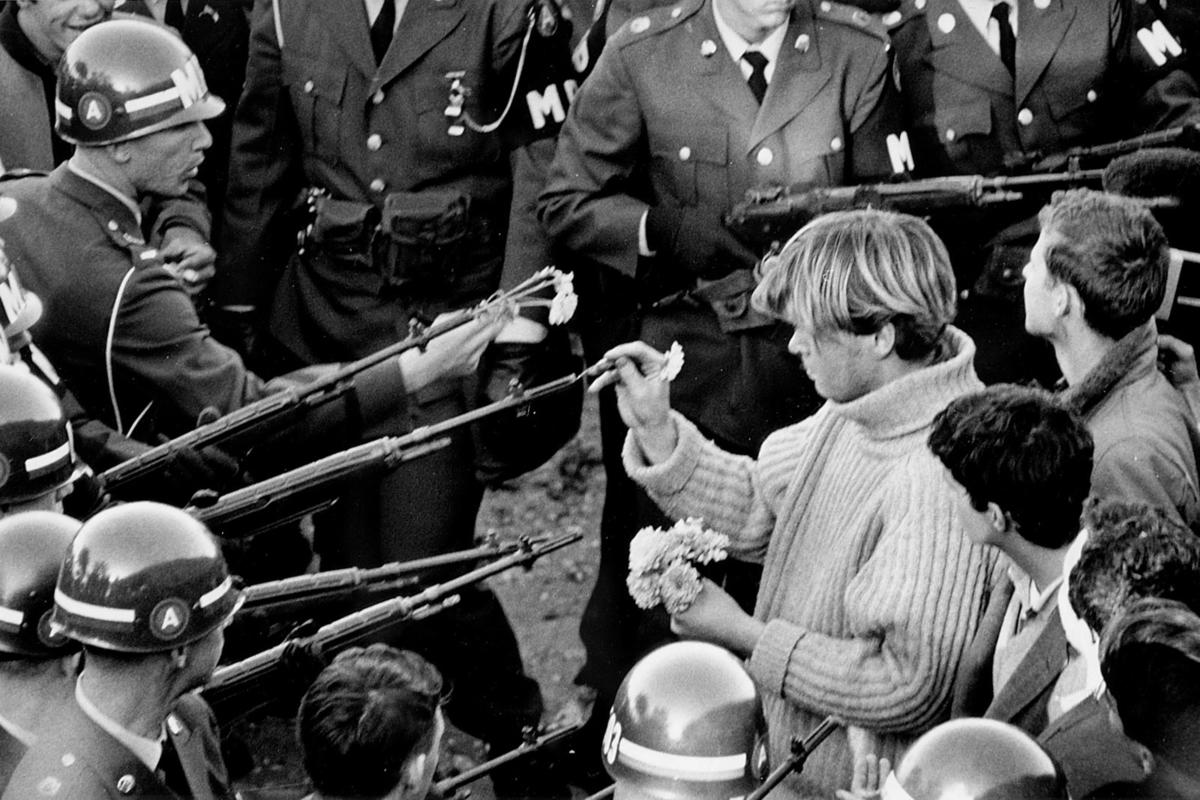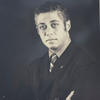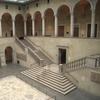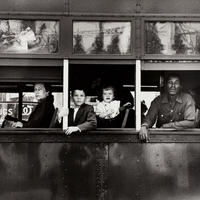More about Flower Power
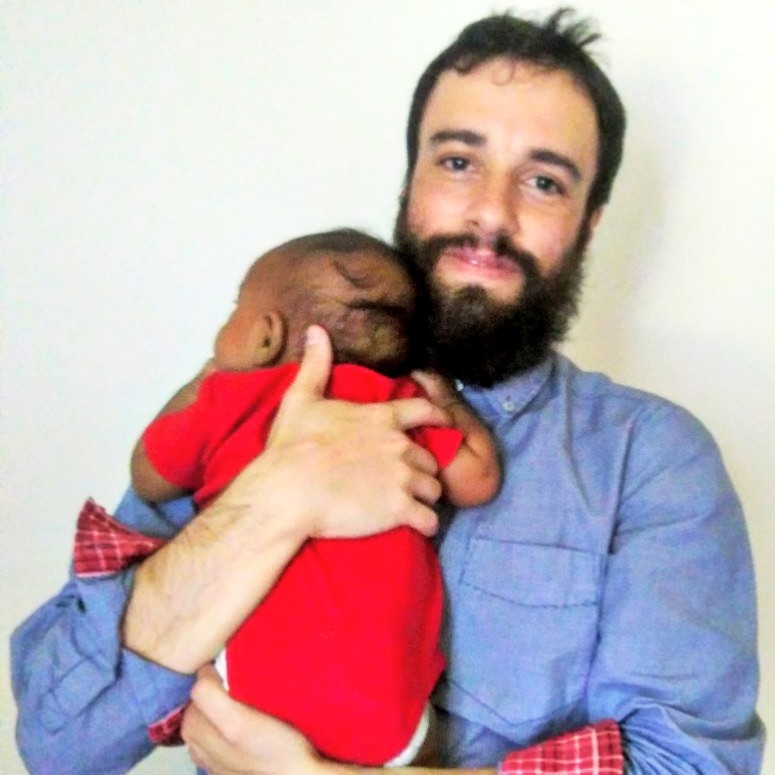
Contributor
In a vetiver-scented, smoke-filled, shag-carpeted bedroom, somewhere in the suburbs, hours from California, a teenager peered, awestruck, at Bernie Boston's Flower Power while a hi-fi spun a vinyl version of Scott McKenzie's voice, released just a few months earlier—"if you're going to Saan Fraan, cisco, you're gonna meet, some gentle people there." Gentle people! Far out!
Although Flower Power takes place near the Pentagon, the "nerve center" of the U.S. Department of Defense, once called the Department of War, about three thousand miles from San Francisco, Boston's masterpiece captures the feeling, if not of San Francisco, at least of the thirst for experimentation which has driven so many millions to the Bay Area, the eventual home of Google and Facebook. Like Otis Redding's "Sittin' on the Dock of the Bay" and "California Dreamin'" by the Mamas and the Papas, this image of the stalemate between the 503rd military police battalion and participants in a march organized by the National Mobilization Committee to End the War in Vietnam evokes a feeling that the East Coast represents the establishment, something that you should overturn, if you want to be a hip cat.
By oral tradition, the young gentle blonde man in the heavy knit white sweater is a Bay Area character, who would settle in either Berkeley or San Francisco, depending on which opinion you follow. There's something poetically appropriate about not knowing who the man is, because the whole idea of "Flower Power" is about losing your individuality in an undifferentiated mass of "lovers" and "seekers," leaving behind your parents' world of "players," achievers and functionaries. Strangely, nobody has researched the identities of the policemen, one of whom, in newsreel footage of the incident, calmly follows the young man along the line of guns, pulling the carnations out of the barrels, like a man picking up after his dog or placating a fitful child.
The young protestor, according to the majority opinion, is George Edgerly Harris III, and they do bear an uncanny resemblance to each other. Harris would, soon afterwards, move to San Francisco, reinvent himself as a drag queen named Hibiscus, and grow a big beard, which makes it hard to know whether this is the same guy or not. The late Paul Krassner, on the other hand, identifies the unnamed man as Yippie organizer "Super-Joel," who would become one of an endless list of Berkeley contrarian pranksters.
Boston shot this photo on assignment for the now-defunct Washington Evening Star, where he met his future wife, Peggy. His bosses buried this photo deep in the paper, but, with his brilliant eye, Boston knew it was something good, and entered it in contests. Unlike Hibiscus and Super-Joel, he kept his government name and never moved to the Bay Area, but he did follow the current and lived in California for a while, reporting for the Los Angeles Times. Boston may have felt some sympathy for both sides, as his friend recalls that he kept a gun, for protection in the rural South, in his car's glove box.
Flower Power shows two college-age young men holding phallic symbols, but the gun, as much as it appears to be an incontestable phallus, is penetrable by a little carnation. In this sense, the flower does win, even though, at any moment, no doubt, the gun can fire on the protestor, as it does in the parody of this image in the movie "The Watchmen", based on the graphic novel by Alan Moore.
Sources
- "Be the Flower in the Gun: The Story Behind the Historic Photograph 'Flower Power' in 1967." Vintage Everyday, Sep. 11, 2017, https://www.vintag.es/2017/09/be-flower-in-gun-story-behind-historic.ht….
- "Flower Power." The Washington Post, https://media.washingtonpost.com/wp-dyn/content/photo/2007/03/17/PH2007….
- Krassner, Paul. "Tom Waits Meets Super-Joel." HuffPost, Jan. 30, 2008, https://m.huffpost.com/us/entry/us_84035.
- Montgomery, David. "Flowers, Guns and an Iconic Snapshot." The Washington Post, Mar. 18, 2007, https://www.washingtonpost.com/wp-dyn/content/article/2007/03/17/AR2007….
- "on bernie boston’s iconic “flower power” photograph of 1967." the endless sixties, Jul. 8, 2018, https://www.theendlesssixties.com/bernie-boston/?amp.
- van Riper, Frank. "Bernie Boston: Farewell to a Friend." Talking Photography, http://talkingphotography.com/archive/2008/bernieBoston.htm.
- "Story Behind Flower Power." YouTube Video, 3:36, Mar. 26, 2016, https://youtu.be/xSDxvI4ex1Q.
Featured Content
Here is what Wikipedia says about Flower Power (photograph)

Flower Power is the title of a photograph taken by American photographer Bernie Boston for the now-defunct newspaper The Washington Evening Star. Taken on October 21, 1967, during the March on the Pentagon by the National Mobilization Committee to End the War in Vietnam, the photo shows protester George Harris placing a carnation into the barrel of an M14 rifle held by a soldier of the 503rd Military Police Battalion (Airborne).
The photograph was nominated for the 1967 Pulitzer Prize.
Check out the full Wikipedia article about Flower Power (photograph)

